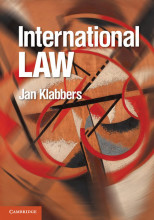Summary: Public International Law
- This + 400k other summaries
- A unique study and practice tool
- Never study anything twice again
- Get the grades you hope for
- 100% sure, 100% understanding
Read the summary and the most important questions on Public International Law
-
22/02/2016'' ''E-lessons''
This is a preview. There are 5 more flashcards available for chapter 22/02/2016
Show more cards here -
e-lesson 13 - The ICC's jurisdiction has a temporal limitation, what does this mean?
Only crimes committed after the entry into force of the Rome Statute can be dealt with by the Court (Article 11). With respect to the crime of aggression, the Court's jurisdiction takes effect only after the coming into force of the above-mentioned amendment to the Rome Statute, in 2017. -
e-lesson 13 - The jurisdiction of the ICC is based on the principle of complementarity (Article 1 Rome Statute), what does this mean?
In other words, the domestic criminal courts enjoy priority in exercising jurisdiction. Thus, only if a domestic legal system is unable or unwilling to deal with the international crime does the ICC have jurisdiction (Article 17, 1b Rome Statute). -
e-lesson 14 - What rules does jus ad bellum regulate?
These rules regulate when force may legitimately be used. -
e-lesson 14 - What rules does jus ad bello regulate?
How to behave in an armed conflict -
e-lesson 14 - What does the overall controle doctrine require?
On the other hand. when a state provides support to a private group, and only generally 'coordinates or helps', but does not control or direct, the planning or undertaking of the activities of the private group, the requirement of 'overall control' is considered to have been fulfilled.
(Tadic case) -
e-lesson 14 - Article 51 UN Charter also refers to 'the inherent right of ... collective self-defense'. What does this mean?
This means that a state may resort to force in the defence of another state. The ICJ dealt with the right of collective self-defence in detail in the Nicaragua case and indicated that the state desiring other states to engage in collective self-defence on its behalf 'normally make an express request to that effect'. -
E-lesson 1: Introduction
This is a preview. There are 4 more flashcards available for chapter 01/01/2020
Show more cards here -
What are the two main theories about recognition of statehood?
- The declaratory theory: according to this theory, recognition of a new state is nothing more than a formal acceptance of fact.
- The constitutive theory: according to this theory, the recognition of a state by other states is an additional requirement in order for a state to come into existence.
-
Where does the degree of international legal personality of IO's depend on?
On the competences of the IO. The international legal personality may explicitly be granted in the constituent document of the organization (the 'founding treaty'). More frequently however, the international legal personality can be implied or inferred from the constituent powers of the organization. -
Which two requirements must be met in order for a rule of customary law to emerge?
- State practice: a sufficient number of states of the international community must have acted in a particular manner for a certain amount of time. This is the objective element.
- Opinio juris (sive necessitatis): states must have carried out these acts with the conviction that these acts have been permitted or even required under international law.
- State practice: a sufficient number of states of the international community must have acted in a particular manner for a certain amount of time. This is the objective element.
-
What does erga omnes mean?
The term 'erga omnes' does not describewhois under a particular obligation; rather, it describesto whom an obligation is owed. Specifically, anerga omnesobligation is owed to the international community as a whole. Examples oferga omnesobligations include: the prohibition of slavery, prohibition of racial discrimination and certain environmental obligations.
- Higher grades + faster learning
- Never study anything twice
- 100% sure, 100% understanding
































